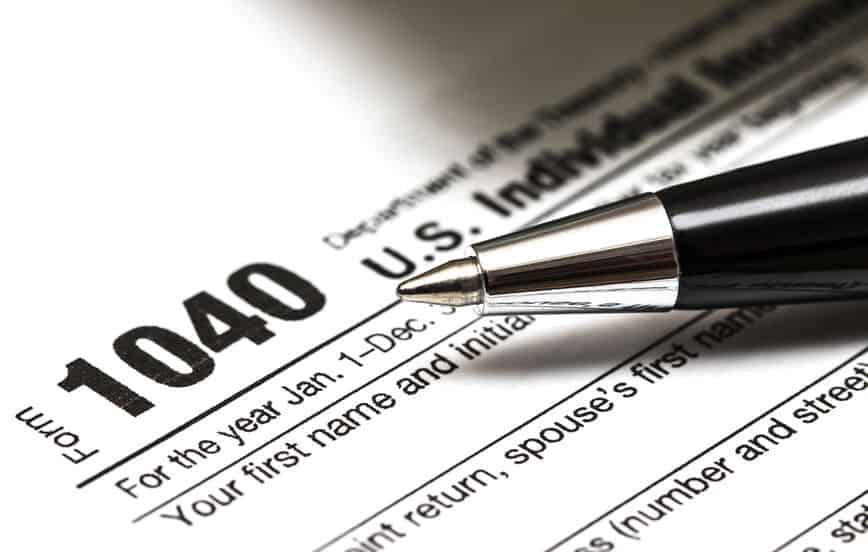24 November, 2023

Written by The Barnes Firm, reviewed by Richard Barnes

Rich Barnes
President
So, you’ve won a legal battle regarding a personal injury and are about to receive a settlement. It’s a celebratory moment, but don’t forget about an important party that might be involved – the IRS. Taxes on lawsuit settlements can be confusing. The tax you pay on your settlement money may vary depending on the type of lawsuit and the damages awarded. In some cases, you may have to pay taxes on all of your settlement money.
It is imperative to seek a professional’s assistance to advise you on what to expect. At The Barnes Firm, our personal injury attorneys can offer valuable insight into the proper steps following lawsuit settlements.
When it comes to lawsuit settlements and taxes, the general rule is that the IRS treats them as income. This means that the proceeds from a lawsuit settlement are taxable in most cases. There is one critical exception to this rule, however – settlement proceeds related to physical injuries or illnesses typically are not taxable.
This includes personal injury settlements, emotional distress claims tied to physical injuries, settlements for physical illness, and medical expense settlements.
Settlements stemming from non-physical lawsuits, emotional distress without physical injury, lost wages and back pay from non-physical injuries, interest on settlements, punitive damages, and legal fees are usually taxable.
It is important to understand these categories when it comes to determining the tax treatment of lawsuit settlements. While these types of settlements are typically non-taxable, we advise our clients to consult with a professional to ensure accurate compliance with IRS regulations.
The taxability of settlement proceeds depends on the nature of the underlying lawsuit or claim. The following damages are usually taxable:
Some settlements don’t neatly fit into the taxable or non-taxable categories. For example, a personal injury settlement may feature elements like punitive damages or interest subject to taxation. On the other hand, a wrongful termination lawsuit could include emotional distress that leads to physical illness, making certain portions of the settlement not taxable. In such cases, seeking the counsel of a tax professional becomes vital for determining the proper tax treatment.
First, identify the nature of the lawsuit settlement. Is it related to physical injuries, non-physical issues, punitive damages, emotional distress, or lost wages? Your tax payment on the settlement process will depend on the type of settlement.
For tax purposes, you must report the entire settlement amount as income, including the portion that goes to your attorney as a contingent fee. Your attorney’s fee is usually deducted from your settlement or award before you receive the settlement.
Navigating the world of lawsuit settlements requires careful attention since you want to avoid any unforeseen financial consequences. To ensure you follow the right path, it’s highly recommended to seek guidance from an attorney who handles personal injury claims.
Our legal team at the Barnes Firm will provide guidance and ensure you correctly handle your lawsuit settlement. Contact our office today at (800) 800-0000 for a free case evaluation.
“As President of The Barnes Firm, I have dedicated my career to achieving justice in hundreds of cases for the victims of injuries caused through the fault of others. Additionally, I have been honored to have been elected Best Lawyer and a Super Lawyer”
Years of Experience: 30+ years

The Barnes Firm is here to help you. Our personal injury firm helps individuals and their families who
have suffered an injury in an accident.

Whether your car crash was minor or serious, any injuries sustained in an accident can be painful and costly.

All motorcycle accidents are different, the compensation you receive will depend on the circumstances surrounding your accident.

A truck accident can be catastrophic, even in low-impact crashes, if you or your family are involved, you may be entitled to significant financial compensation.

There are dozens of accidents involving school buses each year, most commonly, involving children outside a school bus.
Explore Articles Related to Your Situation

As a trusted personal injury law firm, The Barnes Firm understands that claimants have lots of ...
read more
You may be entitled to compensation if you sustain an injury in an accident caused by someone e...
read more
Every day, people sustain injuries for various reasons— car accidents, slip and fall accident...
read more
In New York’s buzzing metropolis, navigating in the legal land of car accident claims is conf...
read moreWe are always available to discuss your case. Give us a call at (800) 800-0000.
Fill out our form and we will contact you shortly to discuss your case
Our attorneys will come to your home, office or hospital at your convenience.
We are available anytime, including after hours and
weekends.
420 Lexington Avenue
Suite #2140
New York, NY 10170
Phone: (800) 800-0000
Fax: +1 (800) 853-5153
600 Old Country Road
Suite #425
Garden City, NY 11530
Phone: (800) 800-0000
Fax: +1 (800) 853-5153
500 Pearl Street
Suite #700
Buffalo, NY 14202
Phone: (800) 800-0000
Fax: +1 (800) 853-5153
451 Grider Street
Buffalo, NY 14215
Phone: (800) 800-0000
Fax: +1 (800) 853-5153
28 East Main Street
Suite #600
Rochester, NY 14614
Phone: (800) 800-0000
Fax: +1 (800) 853-5153
633 West 5th Street
Suite #1750
Los Angeles, CA 90071
Phone: (800) 800-0000
Fax: +1 (888) 800-7050
555 12th Street
Suite #1470
Oakland, CA 94607
Phone: (800) 800-0000
Fax: +1 (888) 800-7050
655 W. Broadway
Suite #940
San Diego, CA 92101
Phone: (800) 800-0000
Fax: +1 (888) 800-7050